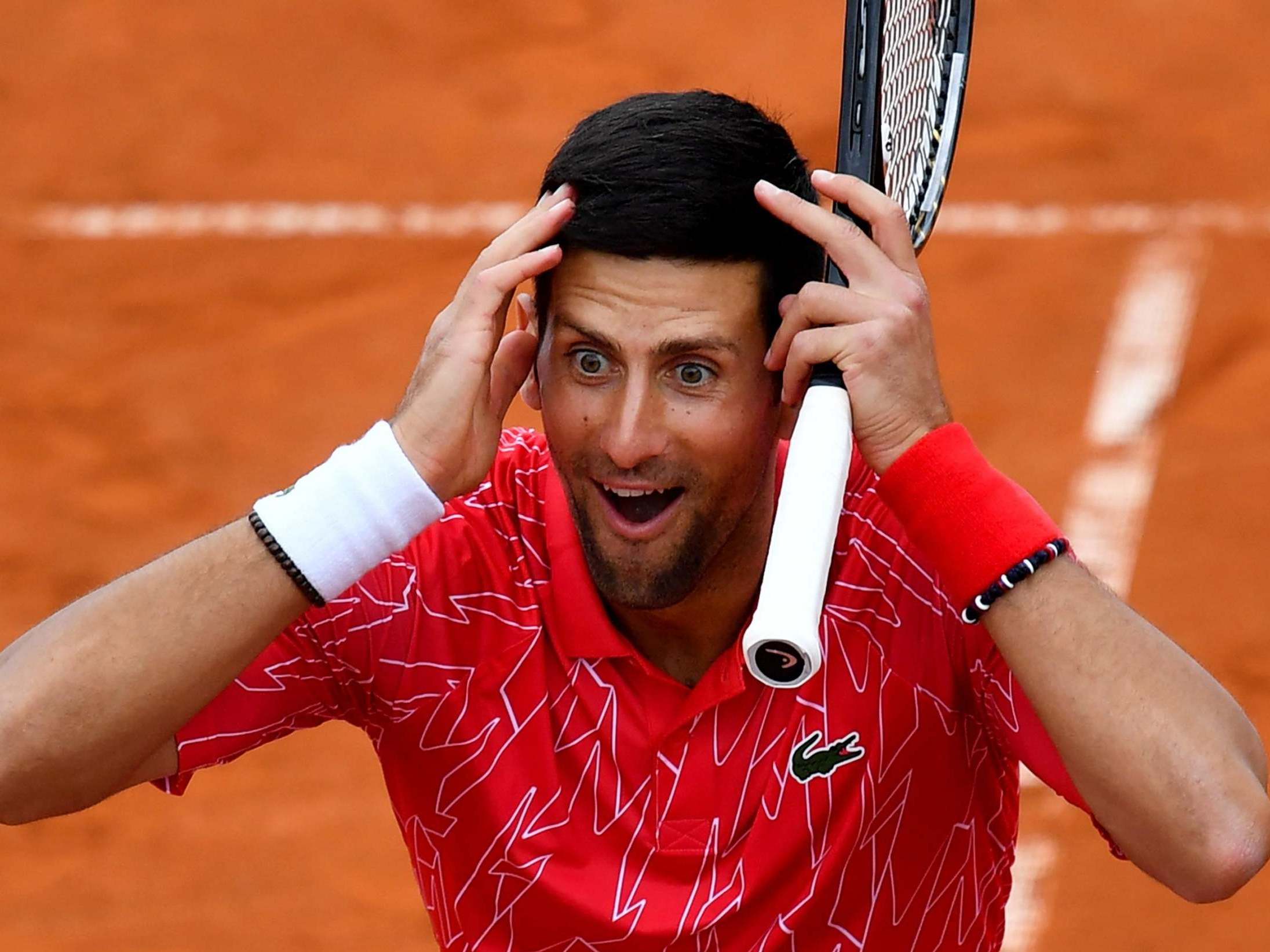Novak Djokovic ‘lacked common sense’ in organising ill-fated Adria Tour
Grigor Dimitrov, Borna Coric and Viktor Troicki contracted Covid-19 during the exhibition events in Croatia and Serbia

Your support helps us to tell the story
From reproductive rights to climate change to Big Tech, The Independent is on the ground when the story is developing. Whether it's investigating the financials of Elon Musk's pro-Trump PAC or producing our latest documentary, 'The A Word', which shines a light on the American women fighting for reproductive rights, we know how important it is to parse out the facts from the messaging.
At such a critical moment in US history, we need reporters on the ground. Your donation allows us to keep sending journalists to speak to both sides of the story.
The Independent is trusted by Americans across the entire political spectrum. And unlike many other quality news outlets, we choose not to lock Americans out of our reporting and analysis with paywalls. We believe quality journalism should be available to everyone, paid for by those who can afford it.
Your support makes all the difference.Novak Djokovic “lacked common sense” in organising the ill-fated Adria Tour, former ATP players’ council head Vijay Amritraj has said.
Djokovic was widely criticised after the exhibition events in Serbia and Croatia saw Grigor Dimitrov, Borna Coric and Viktor Troicki contract Covid-19.
Amritraj admits the Djokovic’s intentions were ”absolutely correct”, but that the world No 1 should have done more to protect the health and safety of everyone involved.
“In hindsight, yes, obviously he could have taken a lot more precautions before running the event,” the 66-year-old pundit told Reuters.
“In spite of certain local government mandates, I think it is critical to follow some common sense.”

Djokovic has since apologised and conceded it was ”too soon” to bring tennis back, after fans flocked to the Belgrade event.
Amritraj, who reached a career-high ranking of 18 and beat Bjorn Borg, Rod Laver and Jimmy Connors in his playing career, thought the tournament would have been good for tennis as it would bring the sport back on television.
“As days progressed, I realised that they were going to put about 1,000 people in a stadium and I really didn’t know how big the stadium was,” he added.
“And later on ... after finding out that the event itself had pretty much a full house from the perspective of fans and none of this social distancing, masks, all of that were even in play, it became very much more of a concern.”
Djokovic also heads up the players council on the ATP Tour and Amritraj, who held the same post for four terms from 1989, said it came with a “huge” responsibility.
“Same for Roger (Federer) and Rafa (Nadal), whatever they say or do is going to have a great degree of influence over the sport worldwide and what people think,” he added.
Amritraj said the Adria Tour debacle showed there should be no crowds if, as planned, the main circuits restart in August after a gap of five months.
“The crowd usually makes a huge difference,” he said.
“Unfortunately you will lose that element of the match. It’ll be pretty straightforward to see a spectacular point and there’ll be no applause in the way.
“So that certainly will affect the players. But again, it’s something that we have to get used to, and it’s better than not having it at all.”
Reuters contributed to this report
Join our commenting forum
Join thought-provoking conversations, follow other Independent readers and see their replies
Comments